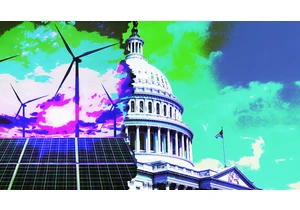Four years ago, Donald Trump worked to cut off Americans’ access to TikTok. Now, as an actual January ban looms, he could be key to keeping the platform operating as usual in the U.S.
The president-elect, who joined TikTok in June to campaign, appears to have flipped the switch and has come out in support of the ByteDance-owned app in the past year. TikTok executives are also hopeful that the Trump administration will be friendly to the platform, The Information reported on Tuesday.
While only Congress can repeal the law that requires TikTok to divest from its parent company or be banned, Trump does have an arsenal of power at his disposal to keep the short-form video app active in the States. (He could also get some members of Congress to flip their votes, though that might prove more difficult.) But it’s not clear whether Trump will actually want to devote so much time and political goodwill to saving TikTok’s fate in the U.S.
“Given the fact that he originally attempted to ban it, his current opposition probably should be interpreted as more opportunistic than principled, and thus it is hard to tell how much priority he would assign to it,” Georgia Tech professor Milton Mueller writes in an email. It will also take time for Trump to replace people at the Justice Department who agree with him, Mueller adds.
If Trump were to aim to protect TikTok, he has options. The main mechanism to enforce the ban would involve civil penalties. Trump could direct the Justice Department to avoid penalizing the platform, internet service providers, and app stores for keeping the TikTok active, University of Minnesota professor Alan Rozenshtein tells Fast Company. That likely would only be a Band-Aid solution, potentially putting the app at risk in the 2028 election.
A more definitive approach could be for Trump to use the language of the law to his power. H.R. 815 prohibits distributing, maintaining, updating, or providing internet hosting services for an application controlled by a foreign adversary. But companies who have executed “a qualified divestiture determined by the President” aren’t impacted.
The language of the bill states that a qualified divestiture is a transaction that the president has determined “would result in the relevant foreign adversary controlled application no longer being controlled by a foreign adversary” and “precludes the establishment or maintenance of any operational relationship between the U.S. operations of the relevant application and any formerly affiliated entities that are controlled by a foreign adversary.” The key here is the president has determined.
“Could Trump just announce that ByteDance has done a qualified divestment of TikTok, even if ByteDance has not done a qualified divestment of TikTok?” Rozenshtein says. “It’s not clear that anybody would have standing to sue.”
Essentially, Trump’s say-so could create the legal reality that it is true. “Trump could defang it by simply declaring that TikTok is not a ‘foreign adversary controlled application,’” Mueller says. “I think he has the power to do that under the law.”
Accedi per aggiungere un commento
Altri post in questo gruppo

Sean “Diddy” Combs was convicted of prostitution-related offenses but acquitted of

A U.S. judge has ruled that China’s Huawei Technologies

Shares of U.K.’s Bytes Technology plunged over 27% on Wednesday after the IT firm said its operating profit for the first half of fiscal 2026 would be marginally lower due to delayed custome

Donald Trump’s Big Beautiful Bill Act has passed through the Senate thanks to

To a certain brand of policy wonk, January 31, 2025, is a day that will live in infamy.
It had been nearly two weeks since President Donald Trump took office for the second time—days th

For a few days, my finger would hover over the TikTok hole on my home screen. But
